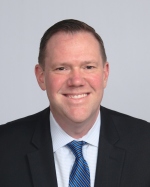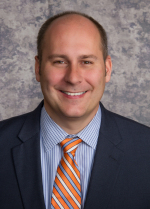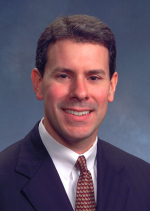Beyond silver, gold and platinum: How OEM service is getting more customized
August 20, 2018
by Lisa Chamoff, Contributing Reporter
Precision medicine — physicians making decisions that are personalized to a patient based on their individual needs — is a huge buzzword in healthcare.
These days, OEMs are practicing what might be called precision service. They’re recognizing that there is a big difference between the service needs of a major health system versus a small community hospital, or even a local imaging center, and adjusting their offerings accordingly.
Moving beyond medals
“There is no longer a one-size-fits-all in service agreements,” said Kevin Chlopecki, vice president of service for Konica Minolta.
Like many OEMs, Konica Minolta has evolved over the last two years from providing only platinum, gold and silver level contracts to customizing agreements as needed to meet the facility’s budget and internal resource requirements.
“We are happy to modify service agreements where we share the work and share the risk,” Chlopecki said. “It’s a win-win.”
David Phillips, senior director of field marketing for Philips Healthcare, said the company continually addresses its customers’ evolving service needs.
“People make investments to develop self-support capabilities for their organizations based on their specific needs, so there is no 'one size fits all' service plan,” Phillips said. “We work closely with customers to customize solutions that meet their current and future service and budget needs around maintenance, parts, data and systems interfacing and integration, clinical and service engineer training, product security, equipment performance management and utilization.”
Some companies are getting more creative with their service offerings.
In the last few years, Canon Medical Systems has expanded its service portfolio to be more flexible based on customer demand. The company now has roughly a dozen service solutions available through its InTouch Flex Agreements — including full service, shared risk and preventive maintenance — and allows customers to move between one agreement model and another, paying more or less money based on their selection, without being locked in.
“A customer can choose to go from one service agreement solution to another based on their needs,” said Joe Graham, director of service sales and marketing for Canon Medical Systems. “They may choose to train someone and want to eventually take on more risk themselves.”
Konica Minolta also offers what Chlopecki called a “pooling concept”, in which customers with many high-value pieces of equipment are covered for a reduced price. Customers have the ability to decide the amount of risk they want to take.
“If a health network has 100 systems and believes it will need only one replacement, risk assumption is low and the price adjusts accordingly,” Chlopecki said. “Beyond the covered events, additional costs may be incurred, but that risk level can be set by the customer.”
Companies are also releasing new models for equipment upgrades.
Late last year, Bayer launched TechCARE, which is a comprehensive service program that has uptime guarantees plus hardware non-obsolescence options for its vascular injectors, which inject contrast into the patient's body during imaging procedures. This offering is available to be added to both newly purchased injectors as well as injectors that have been in use.
“It’s a non-obsolescence program,” said Dennis Durmis, senior vice president and head of commercial operations for Americas Radiology at Bayer. “They’re contracting with us so they will always have the newest technology without having to make future capital outlays. In the long run it saves money.”
Special handling is also necessary for customers who are not necessarily seeking the latest and greatest and want to extend the life of older equipment that is still doing its job.
Carestream offers low-volume service plans for its customers that still rely on CR technology.
“A lot of people want to use CR in a low-volume way,” said Todd Minnigh, vice president of global service sales for Carestream. “In those cases, a full-blown service contract doesn’t make sense. They are still dependent on it as a backup or for specific exams.
“The machine has our brand on it and we want to make sure the machine is providing an image that’s appropriate for our brand,” Minnigh said. “I think it is a differentiator for us.”
OEMs outside the imaging space are also offering more flexibility.
Dräger, which provides service for architectural solutions and medical lights, anesthesia machines, patient monitors, clinical IT and accessories, offers customers to choose from a variety of service offerings based upon their individual needs, said Robert Rejmaniak, services marketing manager for North America at Dräger.
“When you invest in customized service from Dräger, the value you receive from devices and technology is just the beginning,” Rejmaniak said. “We offer services that help improve outcomes, optimize workflow and workspaces, streamline data capture, and support consistent use with common user interfaces and operating philosophies. Ultimately, we believe the services we offer can elevate care for patients and help customers realize financial value in a variety of new ways.”
Extending a hand in-house
Some of these service changes have been driven by a move toward in-house biomedical departments.
“If one hospital has a trained biomedical department that can provide the on-site labor, Konica Minolta will adjust the service level and price accordingly, helping the hospital improve cost effectiveness,” Chlopecki said.
Philips' services for in-house teams include training, predictable spending on parts and shared risk solutions with external engineering resources.
“We also offer full-service Philips and multi-vendor solutions to balance in-house capabilities,” Phillips said.
Carestream is also flexible when it comes to hospitals with biomedical departments. They may want to have the biomedical staff only work on CT and MR, or on DR as well, Minnigh said. There are some agreements in which the customer has agreed to take first call, others where they want to do all the work and only call Carestream when they need them, as well as service contracts that only cover parts and phone support.
Clinical education is also a big part of customized service offerings.
GE Healthcare recently began offering virtual reality goggles for clinical engineering training.
“Instead of flying to California or Wisconsin for training, they can use our simulation training technology,” said Scott Francis, U.S. general manager of service commercial for GE Healthcare.
Over the last few years, GE Healthcare began offering even more flexible contracts that support in-house teams, with clinical engineering taking the first pass at a problem and then GE stepping in when needed. They also offer solutions around phone support, online support and a concierge program for parts.
As part of its clinical education offerings, Siemens Healthineers recently launched FlexForce Coach and Tech.
For FlexForce Coach, Siemens sends trained experts to a facility to help customers get the most out of their imaging systems and help facilities drive outcomes-based improvements. The coach can do such things as help standardize exams over Siemens equipment in multiple locations.
Coaches can be on site for as little as three months or for multiple years.
FlexForce Coach can be purchased along with equipment, as part of a service contract or as a standalone feature.
“We sit with the customer to really discuss what does success look like, what pain points are they experiencing right now?” said Nanci Wozniak, vice president of education services at Siemens Healthineers. “We really gain an understanding of how we’re going to measure and monitor that.”
FlexForce Tech provides customers with highly-trained technicians if they’re facing a shortage of clinical resources.
“Every procedure that’s not being done is costing them money,” Wozniak said. “We’re coming to support our customers in those times of crisis when they can’t find the right talent.”
Predictive service with remote monitoring
OEMs have been shifting service contract focus from reactive and preventive maintenance to predictive and prescriptive actions enabled by system data.
Konica Minolta offers AeroRemote Insights, a cloud-based analytics dashboard that enables customers to better understand how their equipment and personnel are performing. It also enables Konica Minolta to better predict when a customer may need assistance, be it service or training.
“With AeroRemote Insights, we can now address issues before they become problems and respond much faster,” Chlopecki said.
This quick response adds value to Konica Minolta’s service contracts, Chlopecki said.
“We’ve even surprised people with same-day component replacement,” Chlopecki said. “In fact, everything we do must help our customers minimize downtime, maximize productivity and eliminate risk.”
GE also offers remote monitoring, diagnosis and remediation, with a focus on reducing unplanned downtime and enabling proactive preventive services, according to Francis. GE’s Tube Watch, for example, is designed to help predict a CT tube failure before it happens, which aids the customer in ordering parts and service around the patient’s schedule and comes with a certain money-back guarantee.
Bayer has historically had full service offerings for its vascular injectors, with 24/7 technical support, but recently added remote monitoring and software patch solutions for smart connected devices, which helps move services from reactive to predictive, according to Durmis.
“We can monitor the injectors, see what kinds of error codes are occurring and ultimately replace components before they fail,” Durmis said.
Upgrading to concierge service
Siemens Healthineers launched its Signature Service, a comprehensive and personalized concierge service for customers with Siemens equipment in their hybrid ORs, in 2015 and recently expanded the program for regular CT and MR equipment.
At the center of the Signature Service offering is a personalized, ongoing, one-on-one relationship with an expert concierge who understands the customer’s unique challenges, said John Barbati, senior director of service business management at Siemens Healthineers.
The customer’s advanced clinical application specialist, supported by certified service engineers, is available via a dedicated phone line to triage any issue, from clinical and technical support to advanced applications.
Beyond managing end-to-end service, the concierge develops a customized Signature Service Plan that can include enhanced service coverage, clinical education and training, analytics and consulting, Barbati said. “After a while of providing this service, customers were asking us why we couldn’t have services for CT and MR,” Barbati said.
“It’s a very highly customized service offering,” Barbati said. “The concierge is a clinical expert.”
Barbati said the Signature Service program is “a bigger investment above a gold contract, but it’s not a huge amount of money for the value provided to the customer. How much it costs depends on how much the customer wants from us.”
These days, OEMs are practicing what might be called precision service. They’re recognizing that there is a big difference between the service needs of a major health system versus a small community hospital, or even a local imaging center, and adjusting their offerings accordingly.
Moving beyond medals
“There is no longer a one-size-fits-all in service agreements,” said Kevin Chlopecki, vice president of service for Konica Minolta.
Like many OEMs, Konica Minolta has evolved over the last two years from providing only platinum, gold and silver level contracts to customizing agreements as needed to meet the facility’s budget and internal resource requirements.
“We are happy to modify service agreements where we share the work and share the risk,” Chlopecki said. “It’s a win-win.”
David Phillips, senior director of field marketing for Philips Healthcare, said the company continually addresses its customers’ evolving service needs.
“People make investments to develop self-support capabilities for their organizations based on their specific needs, so there is no 'one size fits all' service plan,” Phillips said. “We work closely with customers to customize solutions that meet their current and future service and budget needs around maintenance, parts, data and systems interfacing and integration, clinical and service engineer training, product security, equipment performance management and utilization.”
Some companies are getting more creative with their service offerings.
In the last few years, Canon Medical Systems has expanded its service portfolio to be more flexible based on customer demand. The company now has roughly a dozen service solutions available through its InTouch Flex Agreements — including full service, shared risk and preventive maintenance — and allows customers to move between one agreement model and another, paying more or less money based on their selection, without being locked in.
“A customer can choose to go from one service agreement solution to another based on their needs,” said Joe Graham, director of service sales and marketing for Canon Medical Systems. “They may choose to train someone and want to eventually take on more risk themselves.”
Konica Minolta also offers what Chlopecki called a “pooling concept”, in which customers with many high-value pieces of equipment are covered for a reduced price. Customers have the ability to decide the amount of risk they want to take.
“If a health network has 100 systems and believes it will need only one replacement, risk assumption is low and the price adjusts accordingly,” Chlopecki said. “Beyond the covered events, additional costs may be incurred, but that risk level can be set by the customer.”
Companies are also releasing new models for equipment upgrades.
Late last year, Bayer launched TechCARE, which is a comprehensive service program that has uptime guarantees plus hardware non-obsolescence options for its vascular injectors, which inject contrast into the patient's body during imaging procedures. This offering is available to be added to both newly purchased injectors as well as injectors that have been in use.
“It’s a non-obsolescence program,” said Dennis Durmis, senior vice president and head of commercial operations for Americas Radiology at Bayer. “They’re contracting with us so they will always have the newest technology without having to make future capital outlays. In the long run it saves money.”
Special handling is also necessary for customers who are not necessarily seeking the latest and greatest and want to extend the life of older equipment that is still doing its job.
Carestream offers low-volume service plans for its customers that still rely on CR technology.
“A lot of people want to use CR in a low-volume way,” said Todd Minnigh, vice president of global service sales for Carestream. “In those cases, a full-blown service contract doesn’t make sense. They are still dependent on it as a backup or for specific exams.
“The machine has our brand on it and we want to make sure the machine is providing an image that’s appropriate for our brand,” Minnigh said. “I think it is a differentiator for us.”
OEMs outside the imaging space are also offering more flexibility.
Dräger, which provides service for architectural solutions and medical lights, anesthesia machines, patient monitors, clinical IT and accessories, offers customers to choose from a variety of service offerings based upon their individual needs, said Robert Rejmaniak, services marketing manager for North America at Dräger.
“When you invest in customized service from Dräger, the value you receive from devices and technology is just the beginning,” Rejmaniak said. “We offer services that help improve outcomes, optimize workflow and workspaces, streamline data capture, and support consistent use with common user interfaces and operating philosophies. Ultimately, we believe the services we offer can elevate care for patients and help customers realize financial value in a variety of new ways.”
Extending a hand in-house
Some of these service changes have been driven by a move toward in-house biomedical departments.
“If one hospital has a trained biomedical department that can provide the on-site labor, Konica Minolta will adjust the service level and price accordingly, helping the hospital improve cost effectiveness,” Chlopecki said.
Philips' services for in-house teams include training, predictable spending on parts and shared risk solutions with external engineering resources.
“We also offer full-service Philips and multi-vendor solutions to balance in-house capabilities,” Phillips said.
Carestream is also flexible when it comes to hospitals with biomedical departments. They may want to have the biomedical staff only work on CT and MR, or on DR as well, Minnigh said. There are some agreements in which the customer has agreed to take first call, others where they want to do all the work and only call Carestream when they need them, as well as service contracts that only cover parts and phone support.
Clinical education is also a big part of customized service offerings.
GE Healthcare recently began offering virtual reality goggles for clinical engineering training.
“Instead of flying to California or Wisconsin for training, they can use our simulation training technology,” said Scott Francis, U.S. general manager of service commercial for GE Healthcare.
Over the last few years, GE Healthcare began offering even more flexible contracts that support in-house teams, with clinical engineering taking the first pass at a problem and then GE stepping in when needed. They also offer solutions around phone support, online support and a concierge program for parts.
As part of its clinical education offerings, Siemens Healthineers recently launched FlexForce Coach and Tech.
For FlexForce Coach, Siemens sends trained experts to a facility to help customers get the most out of their imaging systems and help facilities drive outcomes-based improvements. The coach can do such things as help standardize exams over Siemens equipment in multiple locations.
Coaches can be on site for as little as three months or for multiple years.
FlexForce Coach can be purchased along with equipment, as part of a service contract or as a standalone feature.
“We sit with the customer to really discuss what does success look like, what pain points are they experiencing right now?” said Nanci Wozniak, vice president of education services at Siemens Healthineers. “We really gain an understanding of how we’re going to measure and monitor that.”
FlexForce Tech provides customers with highly-trained technicians if they’re facing a shortage of clinical resources.
“Every procedure that’s not being done is costing them money,” Wozniak said. “We’re coming to support our customers in those times of crisis when they can’t find the right talent.”
Predictive service with remote monitoring
OEMs have been shifting service contract focus from reactive and preventive maintenance to predictive and prescriptive actions enabled by system data.
Konica Minolta offers AeroRemote Insights, a cloud-based analytics dashboard that enables customers to better understand how their equipment and personnel are performing. It also enables Konica Minolta to better predict when a customer may need assistance, be it service or training.
“With AeroRemote Insights, we can now address issues before they become problems and respond much faster,” Chlopecki said.
This quick response adds value to Konica Minolta’s service contracts, Chlopecki said.
“We’ve even surprised people with same-day component replacement,” Chlopecki said. “In fact, everything we do must help our customers minimize downtime, maximize productivity and eliminate risk.”
GE also offers remote monitoring, diagnosis and remediation, with a focus on reducing unplanned downtime and enabling proactive preventive services, according to Francis. GE’s Tube Watch, for example, is designed to help predict a CT tube failure before it happens, which aids the customer in ordering parts and service around the patient’s schedule and comes with a certain money-back guarantee.
Bayer has historically had full service offerings for its vascular injectors, with 24/7 technical support, but recently added remote monitoring and software patch solutions for smart connected devices, which helps move services from reactive to predictive, according to Durmis.
“We can monitor the injectors, see what kinds of error codes are occurring and ultimately replace components before they fail,” Durmis said.
Upgrading to concierge service
Siemens Healthineers launched its Signature Service, a comprehensive and personalized concierge service for customers with Siemens equipment in their hybrid ORs, in 2015 and recently expanded the program for regular CT and MR equipment.
At the center of the Signature Service offering is a personalized, ongoing, one-on-one relationship with an expert concierge who understands the customer’s unique challenges, said John Barbati, senior director of service business management at Siemens Healthineers.
The customer’s advanced clinical application specialist, supported by certified service engineers, is available via a dedicated phone line to triage any issue, from clinical and technical support to advanced applications.
Beyond managing end-to-end service, the concierge develops a customized Signature Service Plan that can include enhanced service coverage, clinical education and training, analytics and consulting, Barbati said. “After a while of providing this service, customers were asking us why we couldn’t have services for CT and MR,” Barbati said.
“It’s a very highly customized service offering,” Barbati said. “The concierge is a clinical expert.”
Barbati said the Signature Service program is “a bigger investment above a gold contract, but it’s not a huge amount of money for the value provided to the customer. How much it costs depends on how much the customer wants from us.”









